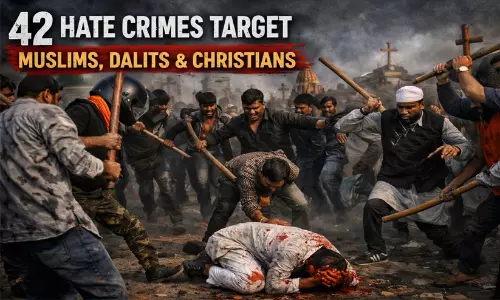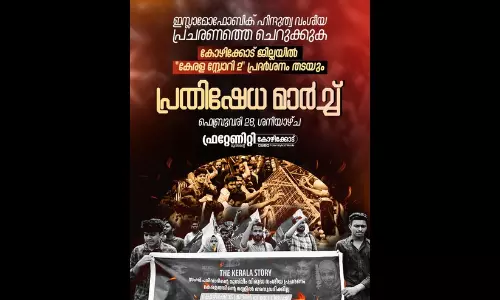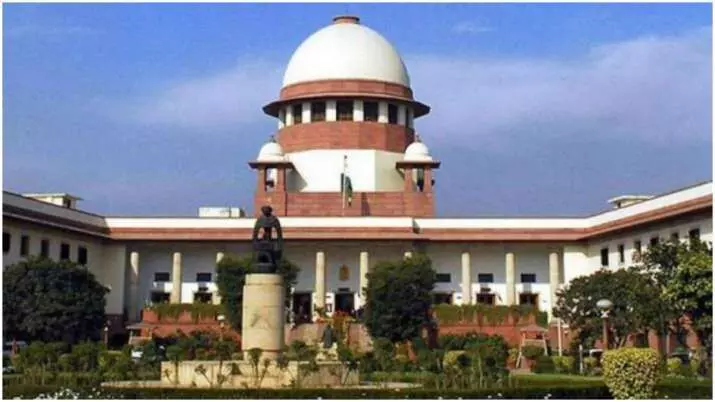
SC issues notice to UP, Uttarakhand; to examine laws against conversion
text_fieldsSupreme Court of India, Image credit: PTI
New Delhi: The Supreme Court on Wednesday sent notices to two state governments, of Uttar Pradesh and Uttarakhand, which have passed laws against 'unlawful' conversions, and asked them to respond before the next hearing to be held after four weeks.
The decision of the bench comprising chief justice SA Bobde and Justices A.S. Bopanna and V. Ramasubramanian, came in response to a batch of petitions challenging the validity of the laws. The petitioners demanded that they be struck down on the grounds that the said laws disturbed the basic structure of the Constitution and they violated secularism, equality and non-discrimination.
The laws under challenge are the Prohibition of Unlawful Conversion of Religion Ordinance 2020 passed by the Uttar Pradesh government and the Freedom of Religion Act, 2018 of the Uttarakhand government, both aimed at prohibiting conversion using force for the purpose of marriage.
Both laws, and similar ones passed or contemplated by governments of some other states ruled by the BJP, aim at stopping what the governments call 'love jihad' – phrase used to describe relationships between Muslim men and Hindu women – and used to forcibly convert women. Critics of the law argue that they are used to target Muslim men, and although it is too early to reviews convictions under these, and even without court decisions, the provisions can be used to harass Muslim men and as a strong deterrent.
Several people have already been arrested under the new law which came into effect in UP following the executive order in November. Further, as per provisions of law police has been charging cases either suo motu or based on a simple complaint by a citizen.
The apex court had initially asked the petitioners to approach the respective high courts where petitions challenging them are pending. However, senior counsel CU Singh, representing the petitioner, Citizens for Justice and Peace pointed out that the top court would be better placed as multiple states are passing such laws, citing examples of Madhya Pradesh and Himachal Pradesh.
Singh also highlighted that the punishment for violation under the laws are upt o 10 years of imprisonment and the burden of proof is on the accused as per the 'horrifying' provisions. Further he also cited that the requirement of prior permission for marriage is 'obnoxious'.
Although a prayer for interim stay was not entertained by the apex court, Chief Justice SA Bobde said all issues would be heard in the next hearing.
Between the petitions before the apex courts, arguments have been raised about the 'illusory construct' based on rhetoric to promote divisiveness in society, to generate permanent suspicious attitudes towards Islam and Muslims and to create enmity between communities, besides issues of privacy, excessive constitutional powers to the police.
The Uttar Pradesh ordinance, for example, provides that religious conversions using falsehood, force or incentive solely for marriage, will be declared a crime. Further, those who plan to convert after marriage are required to serve two months' notice to the district magistrate and it is upto the converting person to prove that the conversion is not for marriage.























